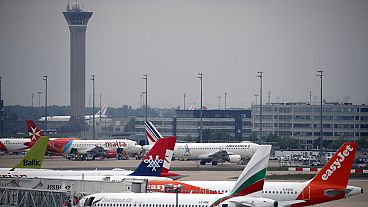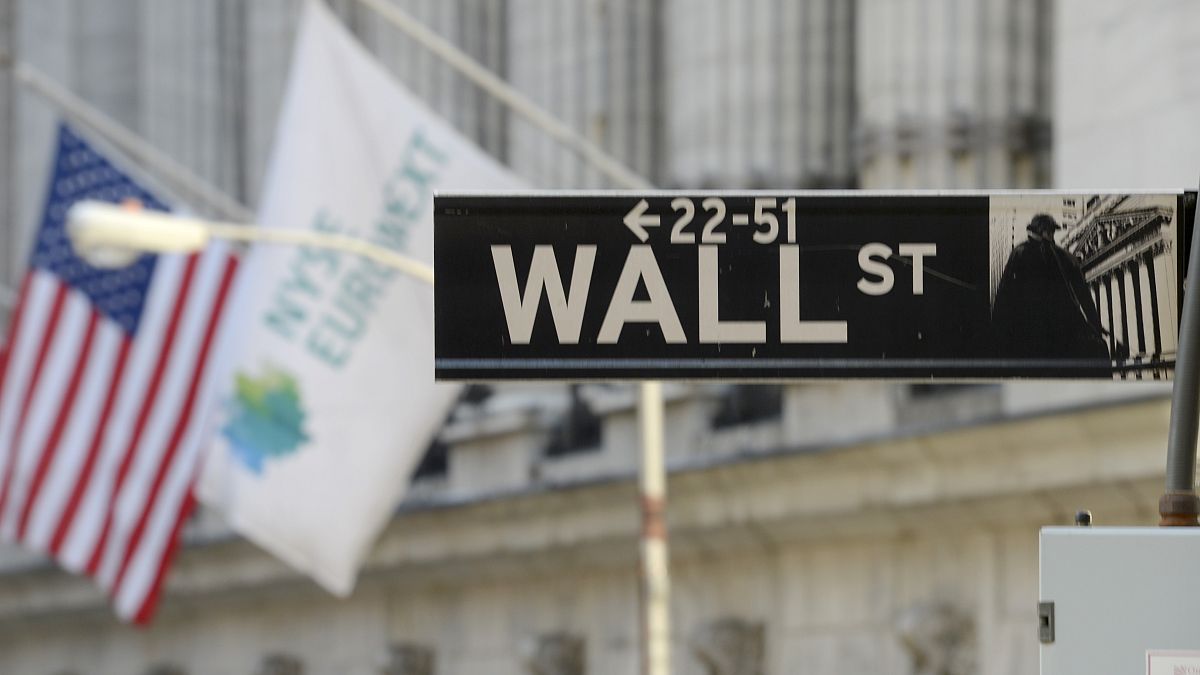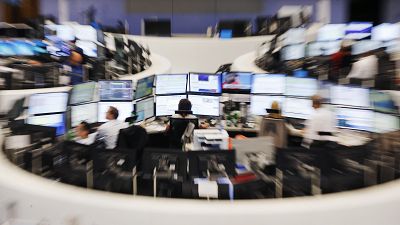Stocks open sharply lower on Wall Street as investors fear a US economic slowdown; Dow drops 1,000 points.
Stocks opened sharply lower on Wall Street on Monday afternoon as investors fear a US economic slowdown.
At the time of writing, the Dow Jones Industrial Average dropped 2.40% to 38,772.21, while the tech-heavy Nasdaq declined 3.74% to 16,152.58. The S&P 500 was also in the red, falling 2.82% to 5,196.00.
It followed European markets also moving lower as risk-off sentiment continues to prevail.
"Markets are experiencing panic selling due to softened economic data in the US, while the Federal Reserve (Fed) remains reluctant to lower interest rates. Investors are concerned that the Fed may be too slow in loosening its monetary policy to avoid an economic recession," market analyst, Tina Teng, explained.
"Haven assets, including gold, the Japanese yen, the euro, and government bonds, climbed as investors flocked to safer destinations. Additionally, the fear gauge, the CBOE Volatility Index (VIX), spiked 26% to above 23, the highest level seen since March 2023," she added.
Traders in the US are now betting the Federal Reserve will have to cut rates by half a percentage point in September instead of the usual quarter point. Some are calling for an emergency rate cut. However, there are opposing voices saying the sell-off is actually a good thing because stock prices had risen too high.
Meanwhile, Asian markets closed poorly on Monday with Japan's Nikkei 225 Index down 12.4% to close at 31,458 points, the lowest level since December 2023.
Here’s a look at what’s driving the turbulence in markets:
Inflation and central banks
Though the Fed hasn’t raised its benchmark rate in a year, interest rates remain at more than two-decade highs after the US central bank raised them 11 times beginning in 2022 in an effort to get inflation down to its 2% target. Part of the Fed’s goal was to cool a red-hot labour market that rebounded after the pandemic recession with the rest of the US economy.
Investors thought the Fed and other central banks were on track, even though inflation remained somewhat above their targets. The European Central Bank and the Bank of England cut once, and the Fed has signaled it was prepared to start cutting rates in September.
Anxiety over the US economy
There had been some pockets of weakness in the US economy, particularly spending by lower-income Americans, but overall the economy still grew at a rate of 2.8% in the second quarter. Then came last week's economic reports.
On Friday, the government's monthly report on the job market showed a significant slowdown in hiring by US employers. Worries that the Fed may have kept the brakes on the economy too long spread through the markets. Reports on manufacturing and construction were also weak.
Big Tech
While technology stocks have been the biggest winners in the market's run-up this year, members of the highly influential group of stocks known as the “ Magnificent Seven ” underwhelmed investors in their latest earnings reports.
This handful of Big Tech stocks drove the S&P 500 to dozens of records this year, in part due to the frenzy around artificial-intelligence technology. But their momentum turned last month on worries investors had taken their prices too high and expectations for their profit gains had grown too difficult to meet, particularly with regard to artificial intelligence.
Apple fell 5% Monday after Warren Buffett’s Berkshire Hathaway disclosed that it had slashed its ownership stake in the iPhone maker. Nvidia lost more than $238 billion in market value Thursday and Friday and the stock was down another 7% Monday.
Japan's slump
The Nikkei suffered its worst two-day decline ever, dropping 18.2% in the last two trading sessions. The wave of selling hit all sorts of companies, including Toyota, Honda and computer chip maker Tokyo Electron.
Share prices have fallen in Tokyo since the Bank of Japan raised its benchmark interest rate on Wednesday.
Analysts said one factor contributing to the falling share prices was carry trades. That's when investors borrow money from a country with low interest rates and a relatively weak currency, like Japan, and invest those funds in places that will yield a high return. But the higher interest rates, plus a stronger Japanese yen, could force investors to selling stocks to repay those loans.















